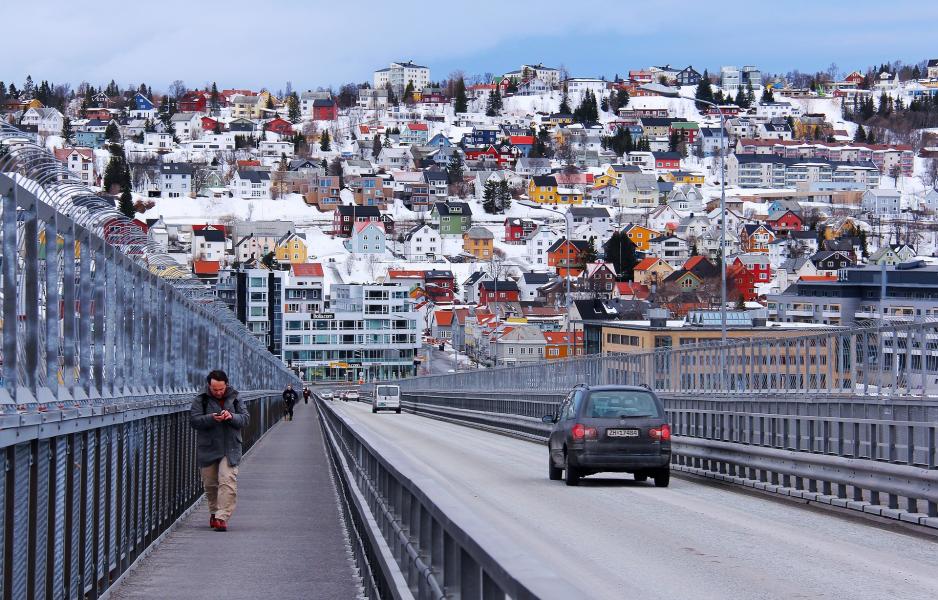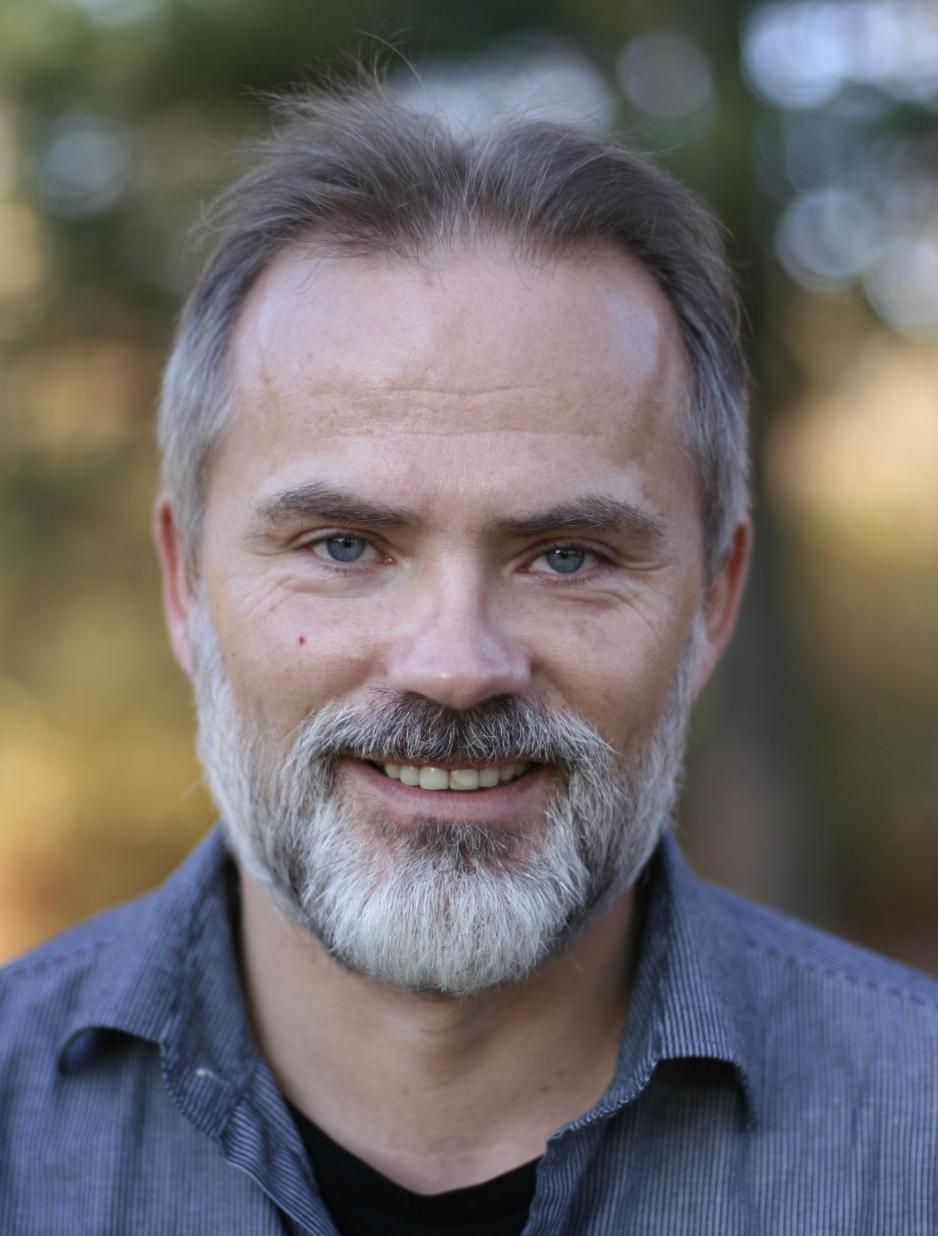Arctic Expert explains the complexities of Norway’s High North politics

To many inhabitants of Northern Norway it feels strange to refer to themselves as Arctic people. (Photo Credit: sharonang, pixabay.com)
"When formulating its High North politics, the Norwegian government has to respond to a multitude of different expectations", says Geir Hønneland from the Fridtjof Nansen Institute.
"When formulating its High North politics, the Norwegian government has to respond to a multitude of different expectations", says Geir Hønneland from the Fridtjof Nansen Institute.
This is further complicated by the foreign policy dimension of Arctic politics: "The neighbourhood with Russia is omnipresent in Norwegian northern politics. Basically, it’s about national security, but also about hopes of business adventures", Mr Hønneland explains to High North News.
How would you describe the development of “Arctic euphoria” over time? Is attention to the North a rather recent event or is there a longer history of "Arctic euphoria"?
"The focus in my book is on Norway’s High North politics since the early 1990s. Clearly, national authorities’ enthusiasm about the northern regions has come in waves, and under different names. The big project of the 1990s was the establishment and reinforcement of institutional cooperation platforms with Russia, either bilaterally or multilaterally, in the Barents Euro-Arctic region. This collaboration has continued to exist but the political enthusiasm surrounding it waned after a few years.
From the mid-2000s, it was reinvented as "High North politics", which was now defined as a national project. Relations with Russia were still centre stage, but the lines between domestic and foreign policy became blurred, and thematically science and business development received more focus than before. In recent years, focus has been more on circumpolar Arctic politics."
You talk about "the Arctic Wave" in your book. What do you mean by that?
"The Arctic wave" is the third big turn in post-Cold War northern politics in Norway. Both the Barents and the High North initiatives were the Labour Party’s "babies", and while consecutive conservative governments have followed up, their enthusiasm has been partly less and partly different. After eight years of red-green rule, the so-called blue-blue government took over in 2013. They have by and large continued the political initiatives but have little interest in profiling Labour slogans more than necessary. Now developments at the international scene came in handy, with recent years’ buzz around the "scramble for the Arctic". Norwegian northern politics was rebranded as "Arctic".
Interestingly, the different layers of post-Cold War northern politics predominate in different locations in Northern Norway. The border town Kirkenes is still the Barents capital, while Bodø remains the centre of High North politics, with its emphasis on business development. Tromsø, the scientific capital of Northern Norway and since 2013 home to the secretariat of the Arctic Council, is increasingly cultivating its Arctic image. Even the University of Tromsø has changed its name to the Arctic University of Norway."
What are key events over the last few decades when it comes to Arctic affairs and which have profoundly influenced Norway’s (and others) policies on the Arctic?
"As I say in my book: "Every Arctic nation has its own reasons for ‘being Arctic’". Sometimes Arctic politics is smaller than Arctic politics itself, aimed for instance at domestic needs of a, strictly speaking, non-Arctic nature. Sometimes Arctic politics is larger than Arctic politics itself, furthering wider non-Arctic foreign policy aims.
The neighbourhood with Russia is omnipresent in Norwegian northern politics. Basically, it’s about national security, but also about hopes of business adventures. Take the Barents collaboration: stable platforms for cooperation with Russia were considered important from a security point of view, but access to the big opening Russian market was also attractive. Ten, fifteen years later, Norwegian participation in the development of the Shtokman field in the Barents Sea was the big price. As an example of a "wider" foreign policy objective, scientific cooperation with China on Arctic issues became an important channel of communication during the six-year diplomatic ice age between the two countries, which began after the Nobel Peace Prize was awarded to Liu Xiaobo in 2010."
What is the "Norwegian way" of being Arctic? Is it a more foreign policy oriented topic or is it more important for domestic issues?
"There’s a very interesting balancing act for the Norwegian government here. On the one hand, it’s not politically correct to present High North initiatives as old-fashioned regional policy – that feeds into the picture of Northern Norway as needy. On the other hand, there are clear expectations of financial support in Northern Norway, for instance by stakeholders that I call "the mayors", local politicians who see "roads, ports and jetties" as legitimate priorities in the government’s High North policies. Then you have the "Cold War romantics", who yearn for a revival of geopolitical interest in the North; the "petro optimists" who see salvation in oil drilling in the Barents Sea; the "Barents practitioners" in Kirkenes, and the "Arctic foxes" in Tromsø.
Arctic fox is the translation of the Swedish word "fjellräven", which again is a brand of outdoor clothing frequently worn by politically correct outdoorsy people who worry about the vulnerability of the natural environment in the Arctic. Arctic politics creates enthusiasm in Norway, sometimes at a deafening volume, but ownership to the phenomenon is diverse."
Is there an "Arctic region"? Or is there rather the Barents region or the North American Arctic region?
As a wise man once said: regions are talked and written into existence. Regions are what we make of them, whether they are defined instrumentally by politicians or appear more spontaneously in public discourse. Clearly, an Arctic region has been created in recent years, thanks to contributions from politics, science and not least the media. Also clearly, there are similarities in terms of climate and living conditions. But there are also big differences between the Canadian tundra and the milder stretches along the Gulf Stream - to many inhabitants of Northern Norway it feels strange to refer to themselves as Arctic people. Just as it felt strange when in the 1990s politicians wanted them to feel like Barents people. I assume you see similar phenomena in other Arctic states. Again: every Arctic nation has its own reasons for "being Arctic"."
Geir Hønneland is Director and Research Professor at the Fridtjof Nansen Institute in Lysaker, Norway, an independent foundation engaged in research on international environmental, energy and resource management politics and law. His most recent book "Arctic Euphoria and International High North Politics" was published with Palgrave Macmillan in 2017.

Geir Hønneland, Director and Research Professor at Fridtjof Nansen Institute. (Credit: Fridtjof Nansen Institute)
